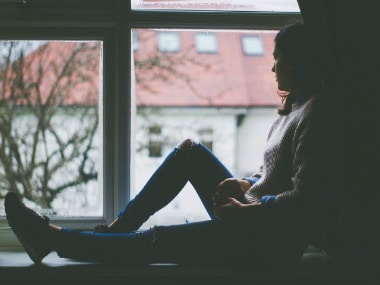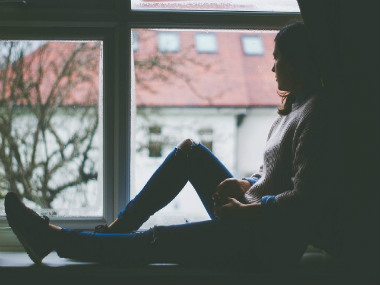With the growing spread of COVID-19, the World Health Organization (WHO) and government bodies all over the world are recommending maintaining social distance whenever possible. According to The Cleaveland Clinic, US, this means avoiding large gatherings and keeping a distance of six feet (two meters) when you have to be around people. Now, we know this isn’t feasible for everyone. But if you are in a position to socially distance yourself, you may decrease your risk of catching the novel coronavirus significantly. [caption id=“attachment_7793551” align=“alignleft” width=“380”]  Representational image. Image by Free-Photos from Pixabay.[/caption] That said, social distance carries its own health hazards. Maintaining distance can quickly turn into loneliness, and loneliness or social isolation can lead to a variety of mental health problems like anxiety, depression, low self-esteem and dementia. Not only that, but lonely people are also at higher risk of developing a cold or heart disease and may have slower recovery rates. So how does one go about social distancing healthily? Here are a few ways to maintain social contact and keep your mind and body engaged in the time of coronavirus:
1. Plan a video call dinner date
Some people don’t like eating alone. And yes, you could stream a movie… But you’ll probably do that post-dinner anyway. Instead, plan a dinner date. Ditch your pyjamas for something nice, light a candle, use the fancy cutlery and turn on the video chat. If you’re not in a relationship right now, it’s also a great first date idea with someone you match with on a dating app. This gives you an escape route if it doesn’t go well.
2. Find your fan circle
Everyone has a few interests that they have very strong feelings about but no one to share that enthusiasm with. Well, there’s a community for almost everything online. Whether it’s your favourite book series or boy band, find an online forum for it and make some new like-minded friends there.
3. Join an online book club
You finally have all the time to read but you can’t go to the library or a book store. We know nothing can beat the smell of a new book but maybe just make do with an ebook or audiobook for now? You can even join an online book club (or even create your own!) so you have some people to discuss the book with once you’re done reading.
4. Start a new series
But not alone - with your best friend or a sibling. Pick a show from an exciting genre like suspense or thriller so you have many shared moments of shock. You can either be on a video call (but on mute, because of echo) or text each other while you watch in sync. It’ll be just like you were sitting next to each other like on a normal day.
5. Organise a gaming tournament
You don’t even have to be into video games - many of the games we play on our phones have the option of playing with friends. All you need is a good internet connection. Even if you can’t play at the same time, you can keep a manual scoreboard for your top scores and keep sending each other screenshots to prove it. Let friends of friends join in, and mix it up with new games every couple of days.
6. Sign up for an online course
No time like the present to sign up for that online course you’ve been meaning to do that’ll help you with your work. Or, if you’re not ready for that kind of commitment, you can look up YouTube tutorials for something simple and fun - like turning your old jeans into shorts for the summer or gardening for beginners. It’s productive and will take your mind off the news cycle for a few minutes a day.
7. Step outside at least twice a day
It’s very important to understand the difference between social distancing and self-quarantine . If you haven’t travelled internationally, had no exposure and are maintaining social distance as a precautionary measure, then you can (and even should) step out from time to time. Go for a run alone in the park or get some sunlight on the terrace. Make sure you get some fresh air from time to time - while maintaining minimum distance from others outside.
8. Help others
Don’t feel pressured to be productive in the extra time you may have. It’s okay to not check off all of your pending chores if you’re feeling overwhelmed by the current climate. You can do some simple things while you process - like ensuring your eat and sleep well. If you don’t live with family, you may feel extreme anxiety since you can’t meet them or help out in any way. Call them from time to time, keep checking in to make sure they’re fine. They’ll find it comforting to hear from you. Things are changing very quickly and we don’t know yet how long the social distancing will last for. If you have friends or relatives who live alone or someone who suffers from any disorder or disease, make sure you check in with them too. Spread positivity and hope, even if you have very little yourself at the moment. Someone might reciprocate when you’re feeling your lowest. For more tips, read our article on Coronavirus_._ Health articles in Firstpost are written by myUpchar.com, India’s first and biggest resource for verified medical information. At myUpchar, researchers and journalists work with doctors to bring you information on all things health.


)

)
)
)
)
)
)
)
)



